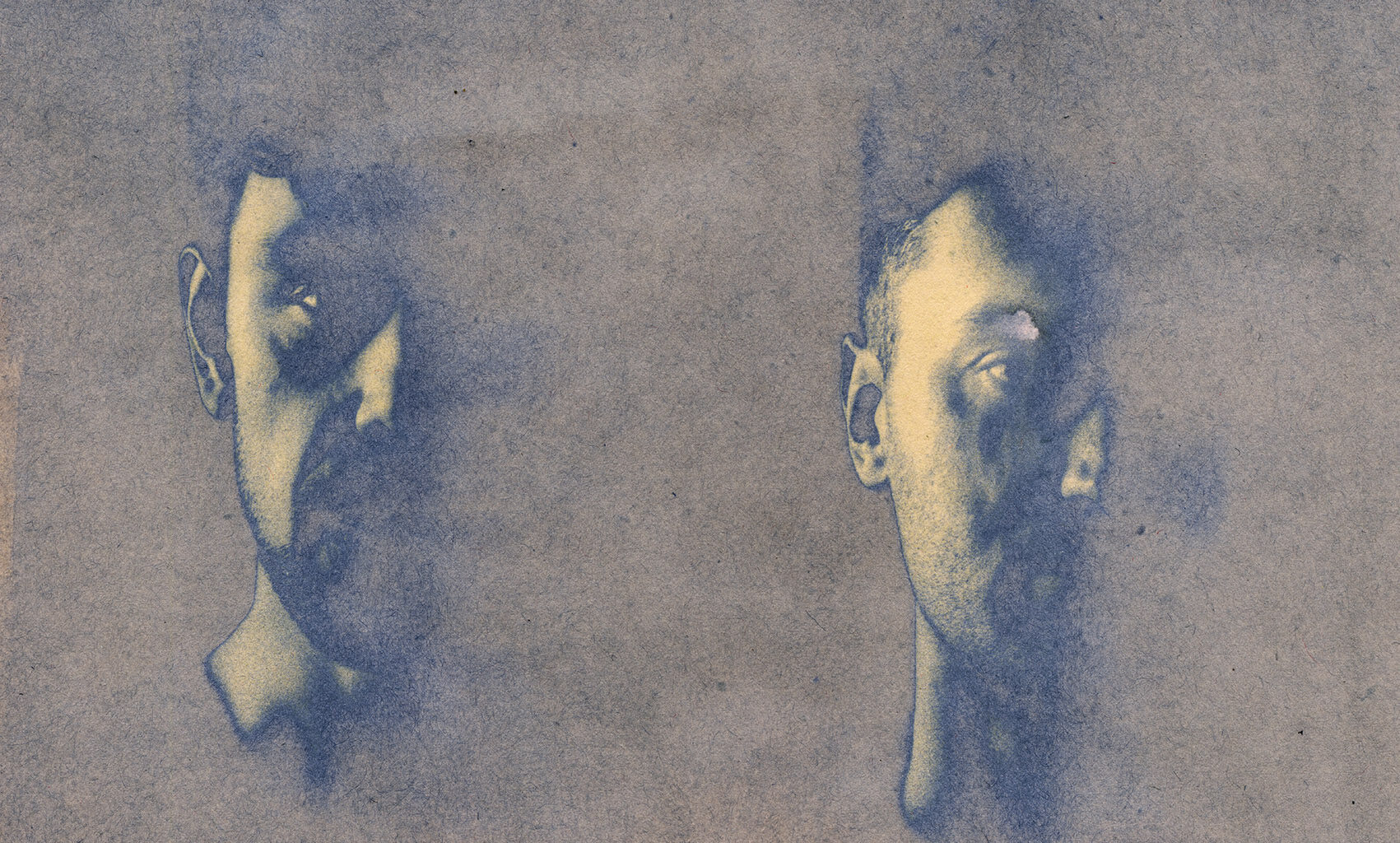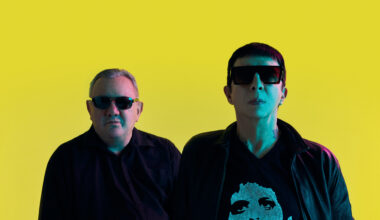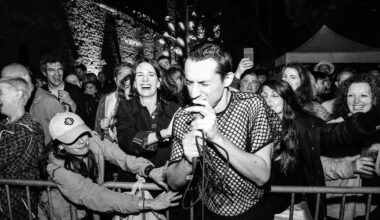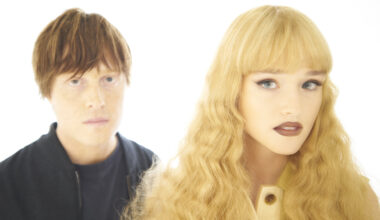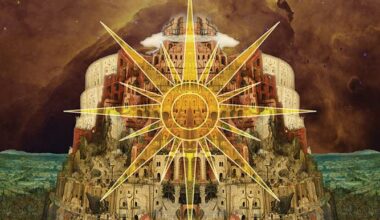On ‘Tall Vision-Of-The-Voyage’, their ambitious second album, experimental London producers Delmer Darion delve deep into their diverse sound world
Delmer Darion have turned up to our interview with their manager, Tristan. It’s telling, but not in any overbearing or micromanaging way. He really just wants to hear Tom Lenton and Oliver Jack talk about their new album over a pint in a Farringdon pub. This lack of pretence is a trademark of the Delmer Darion camp, with the erudite duo both secure in their own contributions, but still far keener to talk one another up than draw any spotlight on themselves.
Delmer Darion’s sound world, first explored on their 2020 debut album, ‘Morning Pageants’, is the sort of place only accessible by a Willy Wonka-style elevator. Tom and Oliver immerse their listeners in medias res, collaging degraded samples with acoustic instruments, dark electronica and spoken word, while carefully crafted songs replete with strident lyrics drift in and out of focus. It’s both beautiful and unsettling.
Their follow-up album, ‘Tall Vision-Of-The-Voyage’, builds on the unique approaches that characterise ‘Morning Pageants’. Amid epic shoegaze, ambient, industrial and “doom-folk” hues, its collection of stories about “human spirit, ambition and the reckless naivety of great adventurers” – think Robert Falcon Scott, Henry Segrave and William Beebe – delves even further into Delmer Darion’s strange sonic realm.
Former schoolmates Tom and Oliver first bonded over a shared love of music and the finer points of cinema, later naming their band after a character in Paul Thomas Anderson’s epic and quirky 1999 psychological drama, ‘Magnolia’. It’s an apt moniker, reflecting the film’s surreal collision of things that are ordinarily unassociated.
“I first saw Tom playing drums in Battle Of The Bands when I was 11,” says Oliver. “He was onstage with his older brother’s band and I was in the crowd. I just thought, ‘He is so cool!’.”
Both of them fall about laughing.
“But you were switched on to electronic music far earlier than I was,” says Tom. “I was starting to play guitar, with a kind of singer-songwriter angle, and you showed me a song you’d made that was full of reversed piano chords.”
“You mean, finding the ‘reverse’ button in Ableton!” interjects Oliver wryly.
“It was like nothing I’d ever heard,” insists Tom. “I thought, ‘Holy shit, this is beautiful’, because it’s this nice piano sound. I started to get it. I don’t think we could really make music in the way we do without having those 17 years of gradually building a… telepathy. The tastes we have, the things we like.
“There’s a big part of me that just wants whatever I’m making to be really cool and interesting. But at least as big as that, if not bigger, is the feeling of wanting to make something Olly is going to listen to and be like, ‘Oh, shit!’.”
The sentiment is clearly mutual.
“It’s an anxious wait for the message to come back once you’ve sent the WeTransfer link,” agrees Oliver. “And you just know the difference between Tom saying, ‘Oh, nice one’, and him going ‘Booooom, this is crazy!’. It drives a productive sense of competition – like, my part needs to be as good as yours.”
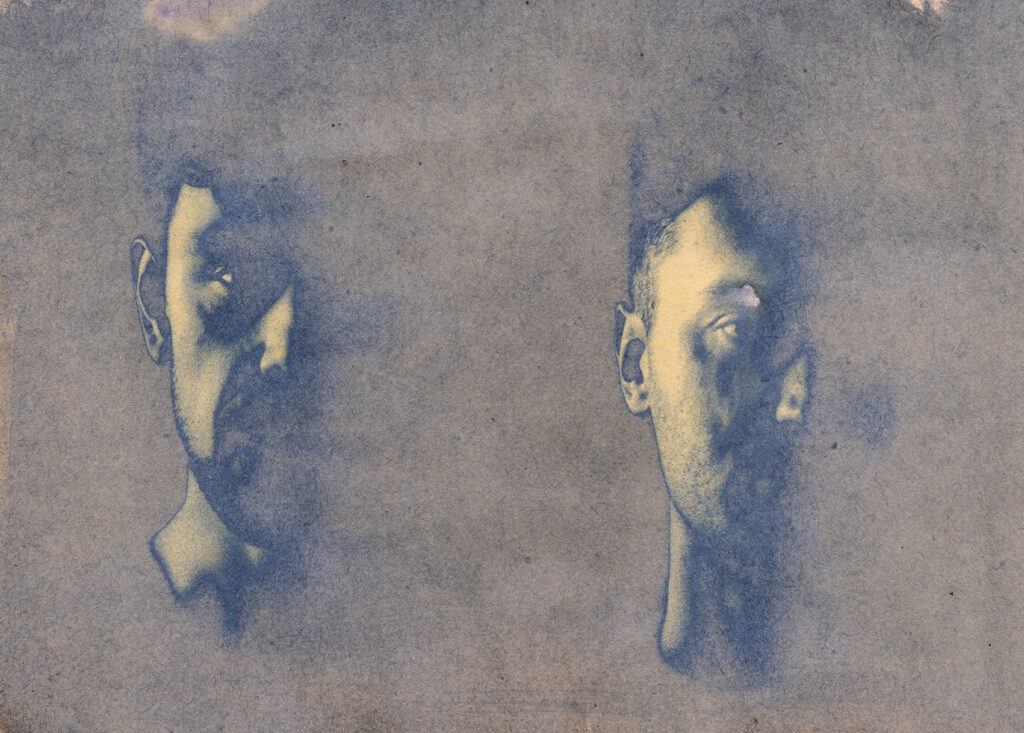
If the duo’s appetite for collaboration was tangible on ‘Morning Pageants’, it’s front and centre on ‘Tall Vision-Of-The-Voyage’. Featuring a veritable roll call of their favourite singers and instrumentalists, including Anna B Savage and Bingo Fury, the album’s second half is exclusively devoted to the astonishingly ambitious ‘Lolaire’.
The four-part, 20-minute epic features the virtuoso cello of Mabe Fratti and the lilting narration of none other than Morfydd Clark – the Welsh actor better-known to many as Galadriel in the Amazon Prime mega-series, ‘The Lord Of The Rings: The Rings Of Power’. Morfydd’s contribution was recorded before her ascent to mainstream success, but as far as Tom and Oliver are concerned, this is a footnote.
“That really didn’t figure in why we asked her,” says Tom. “We asked her because we saw [2020 horror flick] ‘Saint Maud’, and we both absolutely adored it. We thought she was incredible. When we came to having ‘Lolaire’ drafted, one of the strands in it was basically an ancient Welsh Arthurian legend. And we thought, ‘Right, within those constraints, if we could have anybody in the world, who would we have? Fuck it – we’ll try!’.”
It’s fair to say the resulting track is rather staggering, and what’s even more impressive is that Delmer Darion have actually managed to pull it off. ‘Lolaire’ ends up somewhere between Laurie Anderson, Boards Of Canada at their most dystopian and, well, ‘The Lord Of The Rings’, while being firmly planted in Delmer Darion’s world.
I tell them I don’t think I’ve ever heard of a band attempting something like it before, let alone allocating the lion’s share of a second album to it. But it’s not the first time Delmer Darion’s exciting inventiveness has been observed on these pages.
Tristan has been attentively quiet for most of our conversation, but he fondly recalls an Electronic Sound write-up of ‘Morning Pageants’ back in 2020 – a critical reception, he earnestly insists, that they did not expect.
“It was crazy and ridiculous – the review called it a ‘paradigm shift’,” he recalls. “A paradigm shift in underground electronic music!”
And ‘Tall Vision-Of-The-Voyage’ could well be another one. But when it comes to Delmer Darion’s intricate and attention-grabbing music, this paradigm shift is unlikely to be a Billie Eilish-style assault on culture at large. We laugh, but it’s true. Instead, they’re more likely to fly under the radar, gradually converting evangelised listeners one by one.
The Delmer Darion brand of innovation is an undemonstrative and reliably brilliant one, humming away with a blend of unbridled ambition and slow-release energy. To this end, it’s almost frustrating that they’re only two albums in.
‘Tall Vision-Of-The-Voyage’ is out on Practise Music
